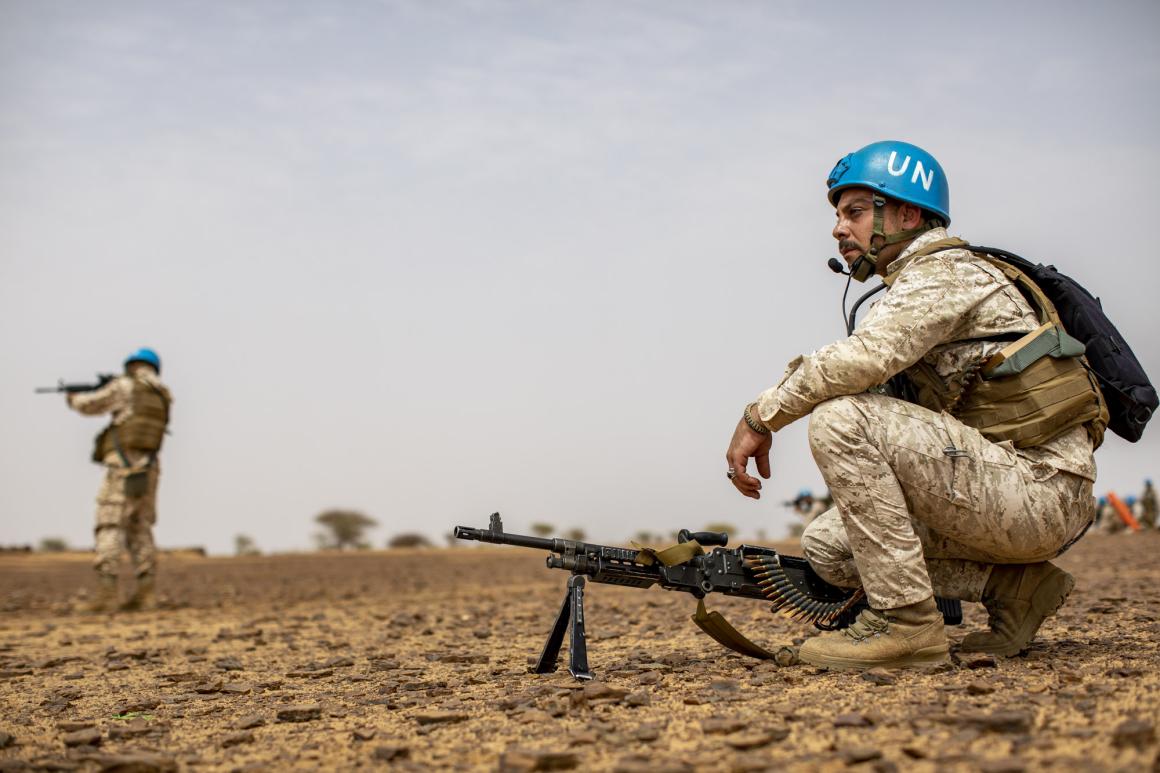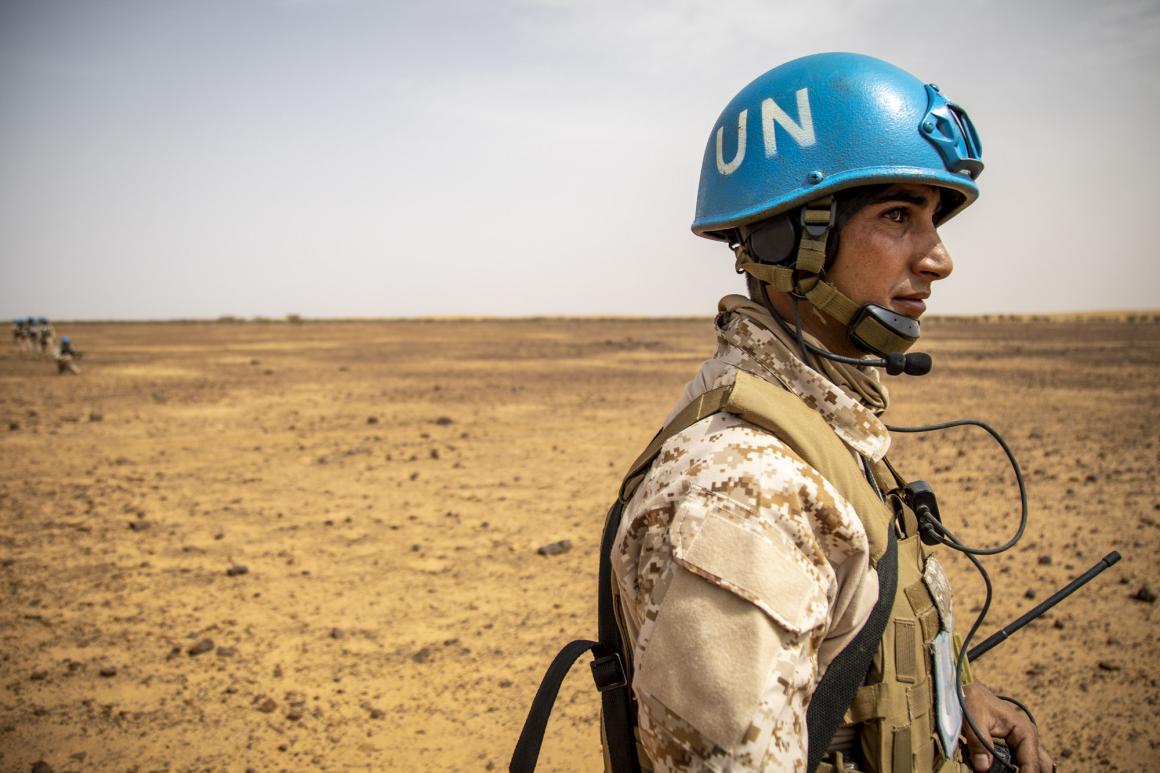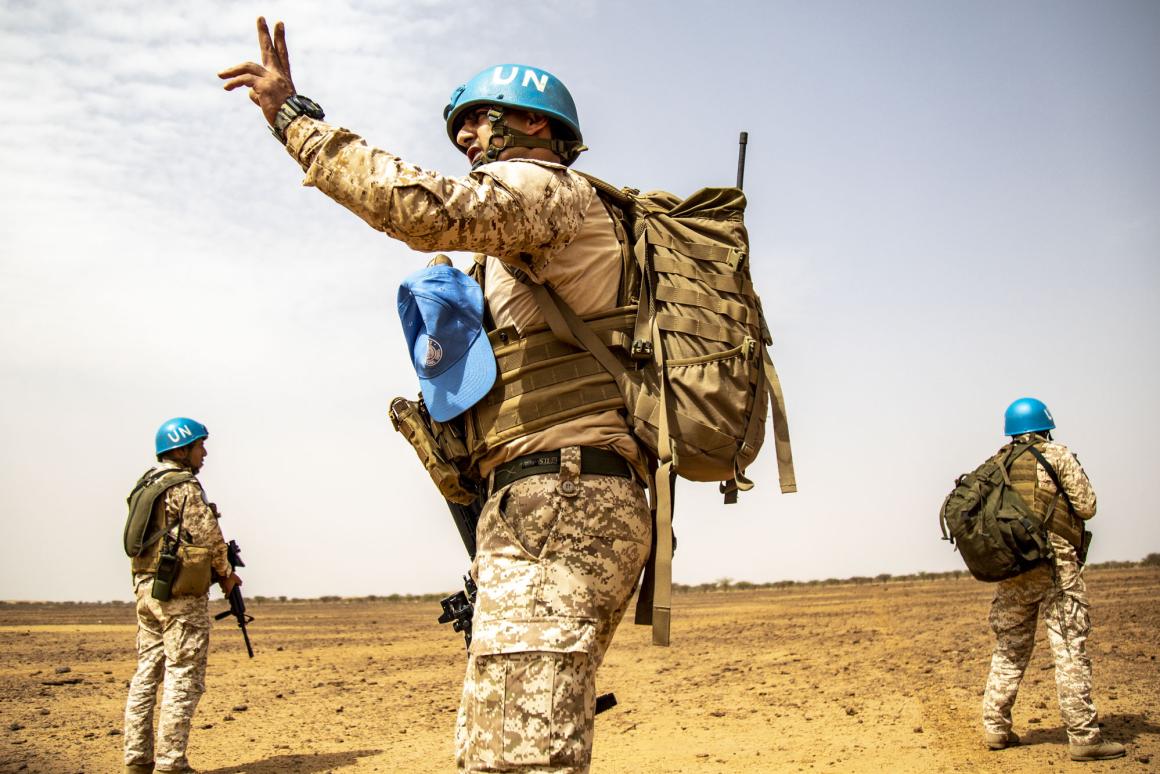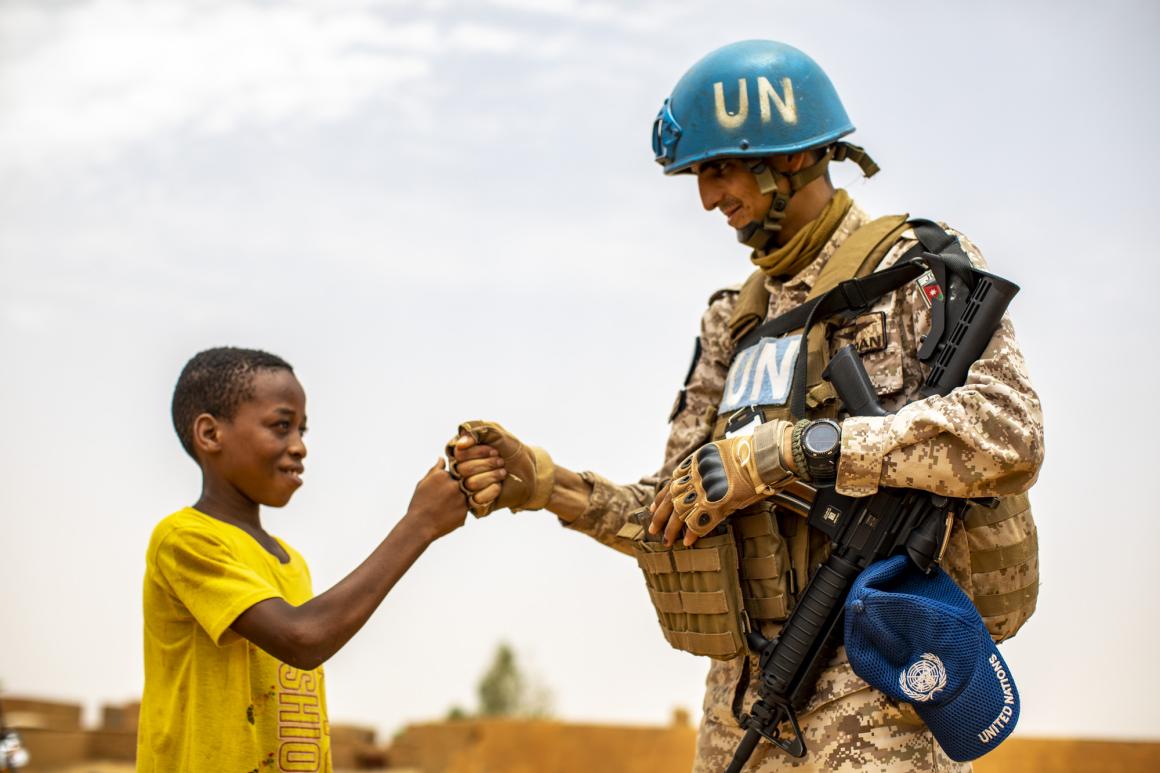It was a warm summer night in Gao, Northern Mali, when people suddenly woke up to the cries of women, men and children. A coordinated attack by terrorist groups on 18 June cost the lives of dozens of civilians in remote villages and led thousands to leave their belongings and flee for safety to the neighbouring town of Djebock.
The UN Peacekeeping mission, MINUSMA, responded immediately, sending an elite Multinational Mobile Task Force (MTF) with Blue Helmets from Jordan, Sweden, Egypt and the United Kingdom to investigate the attacks and protect civilians from further harm. Multinational Mobile Task Forces like these are an essential asset for the peacekeeping mission in emergency situations as they are highly mobile and specialized forces that can respond within hours.

Coined “Operation Moon”, the mission had to be deployed within two days and required a well-coordinated effort between all available forces, as well as sophisticated tactical equipment. Air mobile platoons from the Jordanian Quick Reaction Force, which is considered an elite force with extensive experience in emergency situations, and additional helicopters, unmanned aerial vehicles, and a reconnaissance platoon were all sent to Djebock.
Tech-savvy terrorist groups have been sowing terror in Mali for more than a decade. From 2020 to 2021, the country recorded the second largest increase in terrorism-related deaths, according to the Global Terrorism Index.


Preparedness is key to the success of such urgent operations and a priority under the “Action for Peacekeeping” agenda and its implementation strategy A4P+, which guides UN Peacekeeping’s work across its 12 active operations. “This provides a real-life test of our system,” said Colonel Nabawi Shawawreh, commander of the Jordanian Quick Reaction Force, speaking about Operation Moon. “Our Forces are on constant call to carry out any emergency mission, but this was a demanding one, and its success depended on the good coordination and cooperation of all involved parties.”
The operation enabled safe access for the civilian delegation of MINUSMA to travel to the affected area and speak with Djebock officials and the survivors of the attack. To ensure everyone’s safety during these interactions, the Jordanian Quick Reaction Force secured the location.

“That day, we found a frightened population that was afraid of reprisals, because (…) they could at any moment suffer another attack: either from terrorist groups or from armed bandits looking for easy loot,” Younoussa Hamara, a MINUSMA Political Affairs Officer who spoke with survivors explained.
“We saw a village chief helpless and alone, without anything. He was trying to calm and support the distraught women, to respond to the concerns of others (…). Everyone was trying to leave for Gao, looking for protection, assistance, and security”.
Hearing directly from survivors and engaging with local communities is part of MINUSMA’s work to improve its early-warning mechanisms and protection measures for civilians vulnerable to extremist group attacks and armed violence. In addition to increasing patrols and preventing the escalation of violence, the mission is also developing projects to improve the living conditions of community members.

“Missions like these mean a lot to us, as they’re a concrete translation of the mandate of United Nations peacekeeping forces. It is a great honour for us to be part of these forces and offer a helping hand to the local communities, combat injustice, alleviate their suffering, and help create a safe environment,” added JORQRF Commander Colonel Nabawi Shawawreh.
“It undoubtedly pushes us to strengthen our efforts towards achieving what is everyone’s goal: bring peace to all parts of Mali,” he added.
For the community members of Gao, the priorities are clear and urgent. “We don't need anything except security,” a survivor of the recent attacks, who asked to remain unnamed said.



